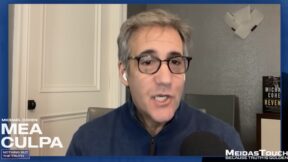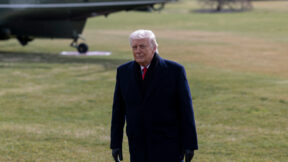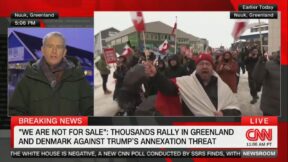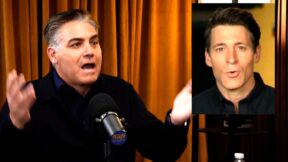Gorsuch Points Out Trump Lawyer’s Argument ‘Hinges’ On Establishing There’s a Difference Between The ‘Term Office And Officer’
Supreme Court Justice Neil Gorsuch cut to the heart of Trump lawyer Jonathan Mitchell’s argument on Thursday that the former president should remain on the presidential ballot, noting it hinges on the differentiation between two terms: “office” and “officer.”
Mitchell is arguing that the president is not an “officer of the United States,” which would mean Trump and all former and current presidents are immune to Section 3 of the 14th Amendment banning insurrectionists from running for president.
“Mr. Mitchell stepping back on this. A lot hinges on the difference between in your argument between the term office and officer. Yes. And I guess I’m wondering what theory do you have from an original understanding or a textualist perspective, why those two terms so closely related would carry such different weight?” Gorsuch asked.
“Because it’s clear from the constitutional text that there are officers that do not hold offices under the United States. For example, the speaker of the House and the president pro tempore, they’re described as officers in Article One who are chosen by the legislature,” Mitchell replied, adding:
They also have to be officers if they’re able to be covered by the Presidential Succession Act, because under the Constitution, only officers can serve when there’s a vacancy in both the presidency and the vice presidency. So they’re officers, but they’re not offices under the United States because of the incompatibility clause, which says that if you’re a member of Congress, you cannot simultaneously hold an office under the United States. So that provision of the Constitution clearly demonstrates that members of Congress can’t hold office.
“I appreciate that response. Is there anything in the original drafting history discussion that you think illuminates why that distinction would carry such profound weight?” Gorsuch followed up.
“Not of which we’re aware. So these are textual emphasis that we’re drawing from constitutional structure and textualist analysis, but we aren’t relying necessarily on the thought processes of the people who drafted these provisions because they’re unknowable. But even if they weren’t knowable, we’re not sure they would be relevant in any event, because this language, especially in section three, was enacted as a compromise, there were certainly radical Republicans who wanted to go much further. If you look at some of the earlier drafts that were proposed, some people wanted to ban all insurrectionists from holding office, regardless of whether they previously swore an oath. Some people wanted to go further and ban them even from voting,” replied Mitchell.
Later in the discussion, Justice Sonia Sotomayor asked Mitchell if his distinction between the two terms was just, “A bit of a gerrymandered rule, isn’t it, designed to benefit only your client?”
“I certainly wouldn’t call it gerrymander. That implies nefarious,” Mitchell shot back as Sotomayor interjected:
Well, that you didn’t make it up. I know some scholars have been discussing it, but just so we’re clear under that reading only. Only the petitioner is disqualified because virtually every other president except Washington, has taken an oath to support the Constitution.
Watch the clip above via Fox News.





Comments
↓ Scroll down for comments ↓